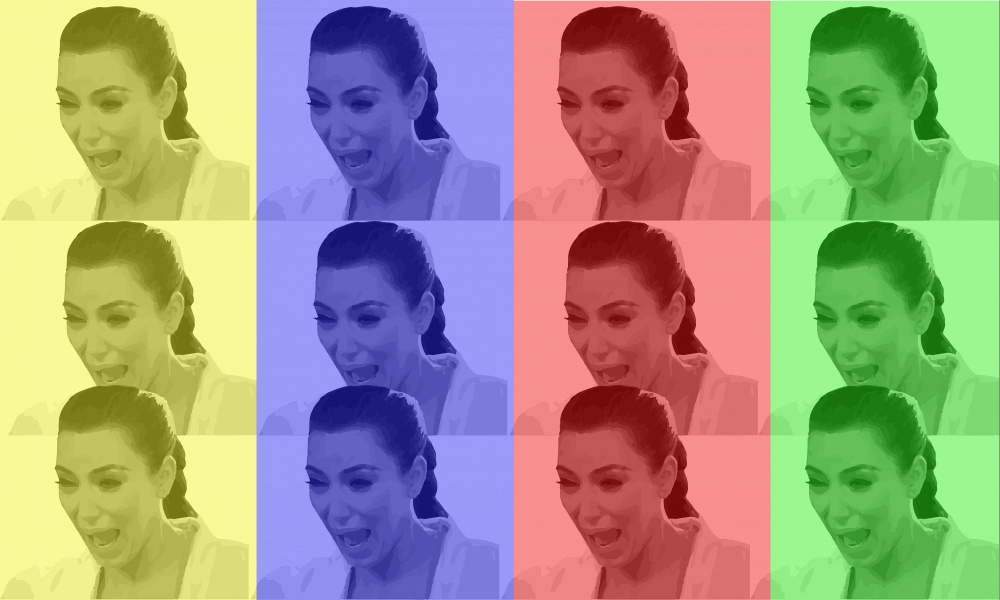This spring, Keeping Up with the Kardashians is airing its 16th season. For some people, this signifies 16 seasons too many, while others revel in the Kardashian’s prolonged period in the limelight. The first season of the reality TV show aired in 2007 which, believe it or not, was more than 10 years ago.
Many elements of our modern lives have changed since then, perhaps most notably the rapid implementation of social media as a means of communication. Facebook, Twitter, Instagram, and Snapchat allow us to “keep up” with celebrities and feed our fixation on grotesque wealth without the aid of a reality TV show. This begs the question: Is a reality TV show still relevant to the general public in this day and age?
This season of Keeping Up with the Kardashians—perhaps in an effort to combat rapidly plummeting ratings—pulls out all the stops. Kanye West, Kim Kardashian’s husband, has finally agreed to appear on the show and even be interviewed by the producers just as the mainstay cast members are, after previously refusing to be featured predominantly on the show in the past.
With entire episodes dedicated to the documentation of Kim and Kanye’s domestic life, it seems as though the rapper has had a complete change of heart. Almost desperate for stand–out content, the producers milk Kanye’s ridiculous, stream–of–consciousness rambling and highlight his artistic projects, like his effort to rehab the Regal Theatre in Chicago.
Kendall and Kylie Jenner—essentially the matriarchs of social media platforms like Instagram and Snapchat—are heavily featured. The cameras document Kylie Jenner, who just reached billionaire status as a result of her makeup line, rifling through perfume samples as Kim proudly shows off the result of the latest ultrasound (yes, Kim and Kanye are having another child). Khloé Kardashian takes Kourtney Kardashian, who just broke up with her supermodel boyfriend, on a “girl’s trip” to mother Kris Jenner’s recently purchased, multi–million dollar complex in Santa Barbara.
The carefully crafted nature of these moments reveals the flaw in the logic of today's reality television. No longer do audiences long to view a meticulously–scripted “conversation” between family members—this isn't 2007.
Instead, they can light up their phones and check Kendall Jenner’s Instagram story to see what city she just landed in for Fashion Week. Social media provides a more organic platform for us to peer in on celebrities’ realities—however real they can actually be—and render even long–running shows like Keeping Up virtually obsolete.
More than just a mechanism to access the lives of the rich and famous, social media is, now more than ever, a platform that facilitates direct interaction with the masses. This directness has the potential to foster a stronger and unprecedented sense of social accountability on the part of the famous.
The Kardashians have teetered on the precipice of taking advantage of this deeper obligation to the social wellbeing of their followers—we have often seen them neglect this responsibility, as was the case with the Kendall Jenner Pepsi advertisement public relations nightmare. As they say, with great power comes great responsibility.
Interestingly enough, it seems as though the family's crown jewel and premiere money–maker, Kim Kardashian, has recently decided to enroll in law courses and devote part of her time to the cause of criminal justice—Vogue recently reported on her endeavor, christening her cover star and appropriately titling her feature "The Awakening of Kim Kardashian West." Only time will tell if this is simply another grab at the latest trend (in this case, being woke) or if her ambitious project stems from a genuine origin. As they also say, "the devil works hard, but Kris Jenner works harder."
One constant, however, is the obsession with all that shimmers and shines—that is to say, the vast amounts of wealth available to increasingly shrinking portions of the population, such as the Kardashians.
Whenever we tune into their show or even like a picture on Instagram, they capitalize off of our attention. This begs the next question: Is it time we started to look away entirely?

